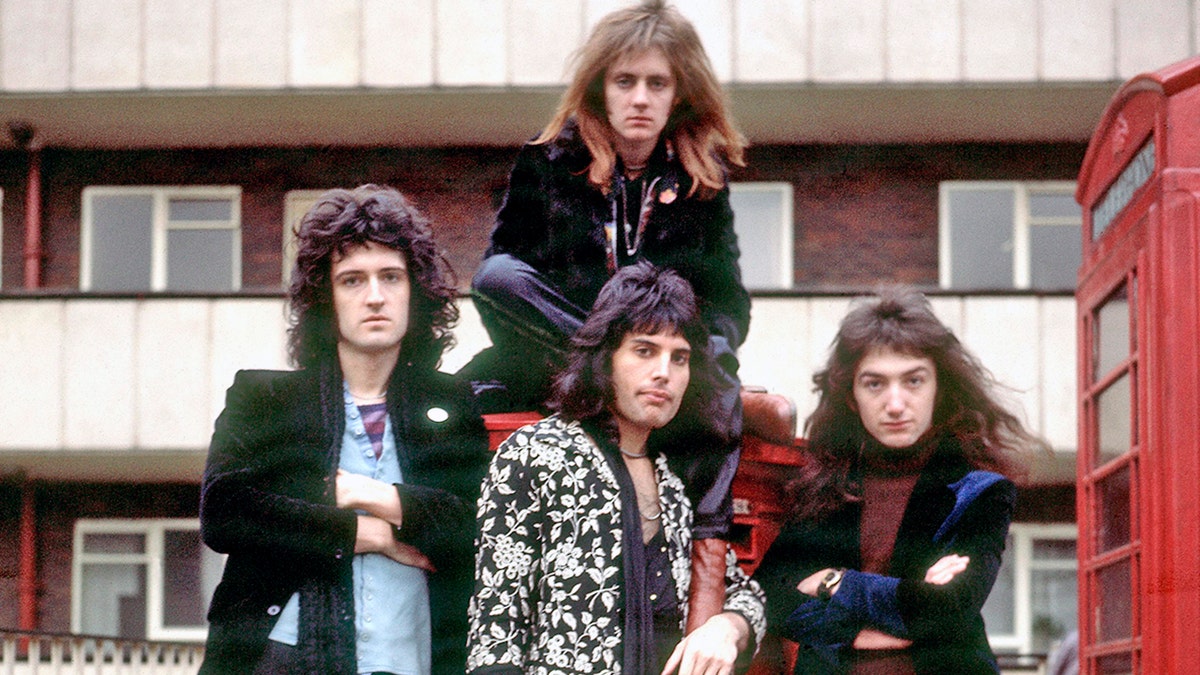About the song
“Bohemian Rhapsody” by Queen is one of the most ambitious and influential songs in the history of rock music. Released as a single on October 31, 1975, and featured on their album “A Night at the Opera,” this track showcases the band’s musical ingenuity and Freddie Mercury’s extraordinary vision as a songwriter. The song’s unique structure, blending rock, opera, and ballad elements, has made it a timeless classic and a staple of popular culture.
The release of “Bohemian Rhapsody” was a pivotal moment for Queen. At the time, its length of nearly six minutes was unprecedented for a single, and many in the music industry doubted its potential for commercial success. However, Mercury’s insistence on keeping the song intact paid off spectacularly. The single topped the UK Singles Chart for nine weeks and became Queen’s first top 10 hit in the United States. It has since sold over six million copies worldwide.
Musically, “Bohemian Rhapsody” is a tour de force. The song is divided into several distinct sections without a chorus: an intro, a ballad segment, an operatic passage, a hard rock part, and a reflective coda. This complex structure was groundbreaking and showcased the band’s versatility. Brian May’s iconic guitar solos, Roger Taylor’s dynamic drumming, John Deacon’s solid bass lines, and Mercury’s multifaceted vocal performance all contribute to the song’s grandeur.
The lyrics of “Bohemian Rhapsody” are enigmatic and open to interpretation, which has fueled its enduring fascination. The song begins with a confessional ballad where the protagonist laments his fate, hinting at a crime and seeking redemption. The operatic section then introduces a cast of characters and dramatic scenarios, blending absurdity with intensity. Finally, the hard rock segment explodes with energy before the song gently fades out in a somber coda. Lines like “I see a little silhouetto of a man, Scaramouche, Scaramouche, will you do the Fandango?” have become part of the cultural lexicon, emblematic of the song’s theatricality and innovation.
The social and cultural impact of “Bohemian Rhapsody” is immense. It broke new ground in music production, with its elaborate overdubs and innovative recording techniques, which were advanced for its time. The song’s promotional video is often cited as one of the first music videos, setting a precedent for the MTV era and beyond. Its re-release in 1991, following Mercury’s death and its inclusion in the film “Wayne’s World,” introduced the song to a new generation, cementing its place in popular culture.
Queen’s live performances of “Bohemian Rhapsody” were legendary. The band often performed it as a centerpiece of their concerts, with the operatic section played as a pre-recorded backing track due to its complexity. These live renditions were a testament to Queen’s showmanship and ability to engage audiences. The song’s dramatic shifts in tone and style made it a highlight of their setlists, showcasing their musical prowess and theatrical flair.
In conclusion, “Bohemian Rhapsody” by Queen is more than just a rock song; it is a monumental achievement in music history. Its intricate composition, bold structure, and Freddie Mercury’s visionary artistry have made it an enduring masterpiece. Whether through its groundbreaking studio recording or its dynamic live performances, “Bohemian Rhapsody” continues to captivate and inspire listeners around the world. It stands as a testament to Queen’s legacy and the boundless possibilities of creative expression in music.
Video
Lyric
Is this the real life? Is this just fantasy?Caught in a landslide, no escape from realityOpen your eyes, look up to the skies and seeI’m just a poor boy, I need no sympathyBecause I’m easy come, easy go, little high, little lowAny way the wind blows doesn’t really matter to me, to meMama, just killed a manPut a gun against his head, pulled my trigger, now he’s deadMama, life had just begunBut now I’ve gone and thrown it all awayMama, ooh, didn’t mean to make you cryIf I’m not back again this time tomorrowCarry on, carry on as if nothing really mattersToo late, my time has comeSends shivers down my spine, body’s aching all the timeGoodbye, everybody, I’ve got to goGotta leave you all behind and face the truthMama, ooh (any way the wind blows)I don’t wanna dieI sometimes wish I’d never been born at allI see a little silhouetto of a manScaramouche, Scaramouche, will you do the Fandango?Thunderbolt and lightning, very, very frightening me(Galileo) Galileo, (Galileo) Galileo, Galileo Figaro, magnificoBut I’m just a poor boy, nobody loves meHe’s just a poor boy from a poor familySpare him his life from this monstrosityEasy come, easy go, will you let me go?بِسْمِ ٱللَّٰهِNo, we will not let you go (let him go)بِسْمِ ٱللَّٰهِWe will not let you go (let him go)بِسْمِ ٱللَّٰهِWe will not let you go (let me go)Will not let you go (let me go)Never, never, never, never let me goNo, no, no, no, no, no, noOh, mamma mia, mamma miaMamma mia, let me goBeelzebub has a devil put aside for me, for me, for meSo you think you can stone me and spit in my eye?So you think you can love me and leave me to die?Oh, baby, can’t do this to me, babyJust gotta get out, just gotta get right outta hereOohOoh, yeah, ooh, yeahNothing really matters, anyone can seeNothing really mattersNothing really matters to me
